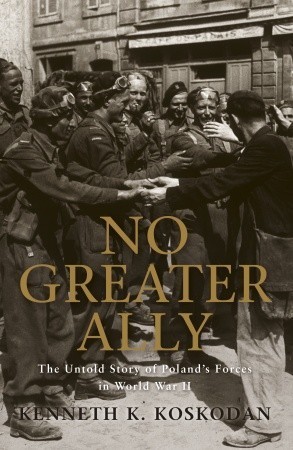What do you think?
Rate this book


272 pages, Hardcover
First published June 23, 2009
No Greater Ally was no doubt a great read, and an excellent choice by the World War Two Readers group for the Poland theme-read month.
For me, the book allowed me to learn about a number of areas in the war that had hitherto been a little underexplained, or perhaps even undersold in common history to me - namely the opening stages of the Second World War and the Polish military and political rationale for the country's actions, as well as the attitudes of some neighbouring states in letting refugees and escaping servicemen through.
Also of interest was the story of life in occupied Poland, providing some detail on the resistance, the divisions within the population, and how the AK and Polish government-in-exile exercised its authority. Additionally, adding the view of life in Soviet-occupied Poland was interesting and one I had not really thought of before (beyond some knowledge of the Katyn massacre).